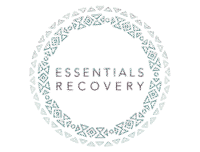Opioid addiction has become one of the most pressing public health challenges of our time. It affects individuals, families, and communities across the globe, leaving behind deep emotional, financial, and social consequences. Recognizing the crisis and knowing where to turn for help is critical for those who are struggling, as well as for their loved ones who want to support them. This blog will explore the scope of the opioid crisis, what signs to look for, and the many options for treatment and recovery. By understanding the problem and knowing what steps to take, you can help pave the way toward healing and hope.
Understanding the Scope of the Opioid Crisis
Over the past two decades, opioid addiction has escalated dramatically, largely fueled by the overprescription of pain medications. Drugs like oxycodone, hydrocodone, morphine, and fentanyl were initially intended to provide short-term relief for severe pain. However, widespread availability and misuse have led to alarming rates of dependence and overdose. In many communities, opioid misuse has become a leading cause of death, surpassing even car accidents in some regions. The crisis is not limited to illicit street drugs—prescription painkillers also play a significant role. Families from all walks of life have felt the devastating impact, showing that opioid addiction does not discriminate by age, income, or background.
Why Opioids Are So Addictive
Opioids work by binding to receptors in the brain and spinal cord, blocking pain and creating feelings of euphoria. This surge of pleasure can quickly lead to psychological and physical dependence. Over time, the body builds tolerance, meaning larger doses are needed to achieve the same effect. This cycle of tolerance and dependence is what makes opioids particularly dangerous. For many, what begins as legitimate medical use after surgery or injury spirals into misuse, dependency, and addiction. In some cases, when prescription medications become too expensive or difficult to access, people may turn to illicit opioids like heroin or counterfeit pills laced with fentanyl, which can be even more deadly.
Recognizing the Signs of Opioid Addiction
Recognizing opioid addiction early is crucial for seeking timely help. Some signs to look for include physical symptoms such as pinpoint pupils, drowsiness, slow breathing, and frequent flu-like symptoms. Behavioral changes like secrecy, withdrawal from loved ones, or neglecting responsibilities may also appear. Emotional shifts including mood swings, irritability, anxiety, or depression often accompany addiction. Financial and legal issues such as borrowing money frequently, missing work, or involvement in criminal activity to obtain drugs can also be warning signs. If you notice these indicators in yourself or someone you care about, it may be time to consider professional support.
The Human Impact of the Crisis
Behind every statistic are real people—parents, children, siblings, and friends. Opioid addiction often fractures families, leaving loved ones unsure of how to help. It also creates ripples in communities, impacting workplaces, schools, and healthcare systems. However, it’s important to remember that opioid addiction is a medical condition, not a moral failing. Those struggling deserve compassion, support, and access to effective treatment. Shifting the narrative from blame to healing is one of the most important steps society can take to combat the crisis.
Seeking Help: Treatment Options for Opioid Addiction
If you or someone you love is facing opioid addiction, know that recovery is possible. There are multiple treatment paths available, and the right approach often depends on individual needs. Detox programs help individuals safely withdraw from opioids under supervision. Because withdrawal symptoms can be severe, detox provides medical support to reduce discomfort and manage complications. Medication-assisted treatment (MAT) combines behavioral therapy with FDA-approved medications like methadone, buprenorphine, or naltrexone. These medications stabilize brain chemistry, reduce cravings, and lower the risk of relapse, making long-term recovery more achievable.
Counseling and behavioral therapies such as cognitive behavioral therapy (CBT), contingency management, and family counseling play a vital role in addressing the psychological side of addiction. These therapies help individuals build coping strategies, reshape thought patterns, and repair damaged relationships. Inpatient and outpatient programs provide either residential support with 24/7 care or allow individuals to continue daily responsibilities while attending therapy sessions. The right choice depends on the severity of the addiction and the level of support needed.
The Role of Family and Community Support
Recovery does not happen in isolation. Family involvement can make a significant difference in treatment outcomes. Support groups offer safe spaces for families to share experiences and learn how to encourage their loved one’s recovery without enabling destructive behaviors. Communities also play an important role by reducing stigma and ensuring access to resources. Public health campaigns, local support services, and peer recovery groups provide hope and encouragement for individuals on their journey.
Overcoming Barriers to Treatment
Despite the availability of effective treatments, many people struggling with opioid addiction face barriers to care. Common obstacles include stigma that prevents individuals from admitting they need help, cost and insurance challenges that make treatment difficult to access, and geographic limitations in rural areas with few specialized services. Fear of withdrawal symptoms can also discourage individuals from seeking detox. Addressing these barriers requires a collective effort, from improving healthcare access to changing public attitudes toward addiction.
Finding Hope in Recovery
Recovery from opioid addiction is not always easy, but it is absolutely possible. Countless individuals have rebuilt their lives, regained their health, and restored relationships through treatment and ongoing support. Each step forward—whether attending a support group, completing a counseling session, or celebrating a milestone in sobriety—is a victory worth honoring. Hope grows stronger when people realize they are not alone. Sharing stories of recovery can inspire others to take the first step and remind us all that change is possible.
Steps You Can Take Today
If you or someone you love is struggling with opioid addiction, there are practical steps to begin the journey toward healing. Reach out to a trusted healthcare provider for guidance. Explore local and national resources for addiction support. Consider joining a support group to connect with others who understand the struggle. Encourage open and honest conversations about addiction without judgment. Remember that relapse does not mean failure—it simply means treatment may need adjustment.
A Lifelong Commitment to Healing
Opioid addiction is a widespread and complex crisis, but it does not have to define a person’s future. By recognizing the warning signs, understanding the available treatments, and fostering supportive environments, we can help individuals reclaim their lives. Seeking help is an act of strength, not weakness. If you or a loved one are facing opioid addiction, resources and support are available. With the right care and community, recovery is not just possible—it is within reach. Call us today at 855-509-1697.



